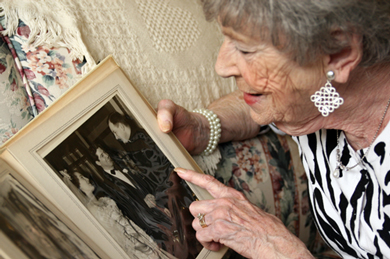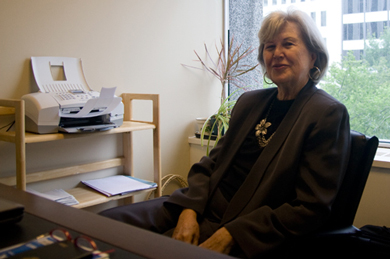Lost and Found

Late-life Challenges:
What We Lose as We Age
by Abigail Jones, Connor Boals and Scott Sell
For months after her husband of 52 years died last spring, Laurel Frisch struggled to read a book. She couldn’t make decisions; she only occasionally left her house in Rockville, Md. In those rare moments when she could summon the energy, she wandered aimlessly through stores.
“I thought that I had prepared myself for it,” Frisch, who’s 72, says of life as a widow. “Maybe I did, but I’m still feeling devastated. I’m still feeling practically immobile.”
Psychological and emotional losses change the way older Americans live. How they navigate a cascade of challenges—particularly social isolation, widowhood and depression—can determine the course of their final decades.

Wisdom Begins at the End:
What We Gain With Old Age
by Josh Tapper
With 14 siblings screaming at each other in a mediation room at the Washington, D.C., Superior Court house, Carolyn Miller Parr started to lose her cool. Parr, the 73-year-old cofounder of Beyond Dispute Associates, a mediation and arbitration practice, was trying to determine who would shoulder responsibility for care of the family’s elderly mother—and the six lawyers present weren’t helping.
A former United States tax court judge, Parr isn’t prone to visible exasperation. This time, though, she yelled back. “See that red button there?” she demanded, pointing to the alarm found in each mediation room. “If I push that, a guard is going to come and if he comes, someone’s going to jail. You can talk one at a time.”